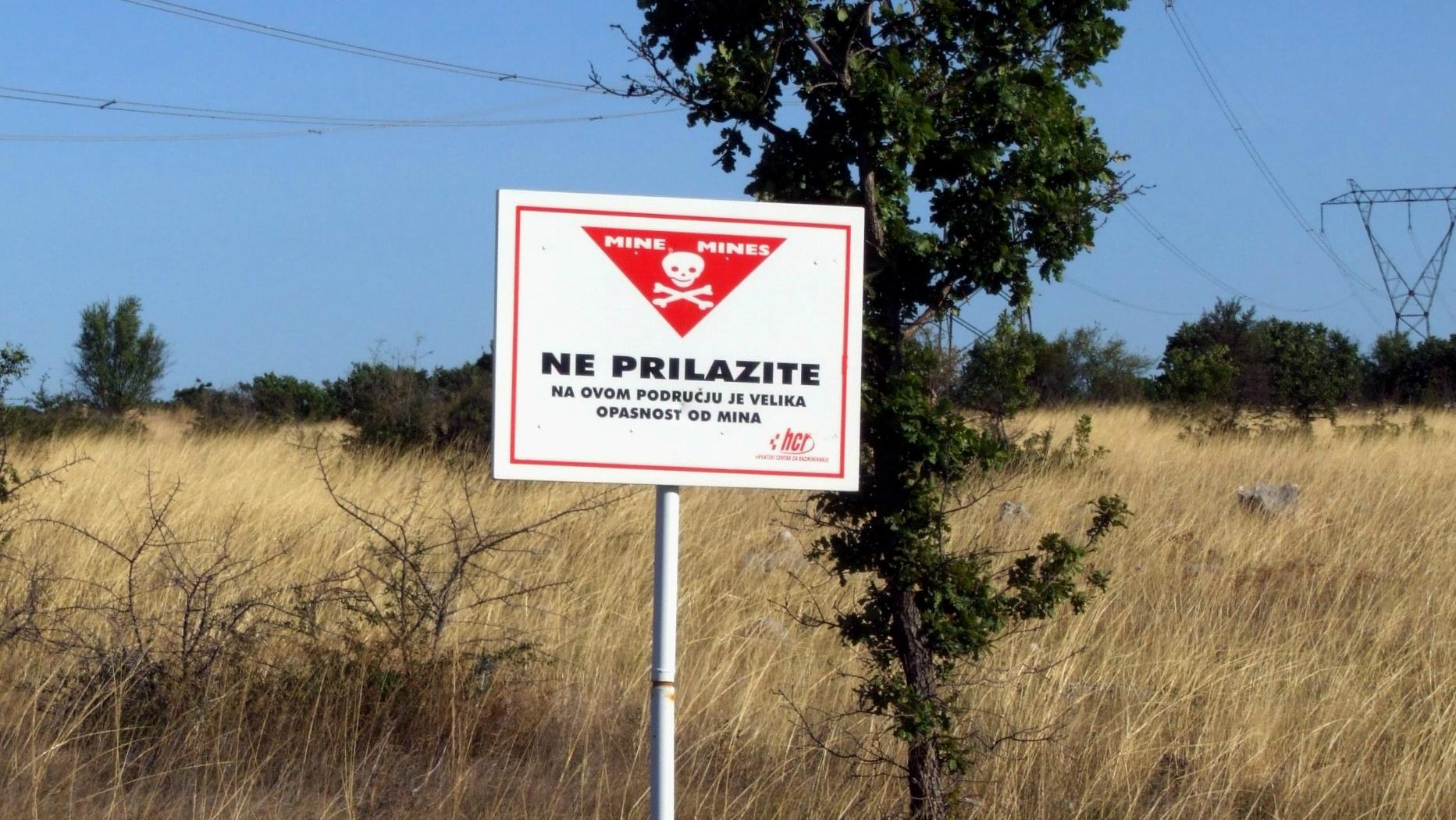Refugees streaming into Europe now have a new challenge: Landmines in Croatia
Signs like this indicate abandoned minefields around Croatia.
With the border between Serbia and Hungary now closed, more than 7,000 migrants and refugees entered Croatia and on Friday the country closed its official border crossings. But the journey across Croatia poses challenges, beyond the perils of finding a spot to cross the border.
There are an estimated 50,000 land mines buried beneath Croatian soil, covering nearly 200,000 square miles. The mines are left over from the Balkan Wars of the 1990s.
Miljenko Vahtaric, assistant director of Croatia's Mine Action Centre (CROMAC), says his country has been taking steps to warn people about and remove the mines since 1998.
“The mine problem in Croatia, the hazards are minimized because the old suspected area in Croatia is marked with warning signs — there are more than 12,000 warning signs across the suspected hazardous areas,” he says.
From 2012 to 2015, there were no mine accidents involving civilians. Vahtaric says this online map has helped to educate Croatians about where land mines are, adding that before the border was closed, border agents were trying to provide migrants and refugees with paper flyers of the map. If they don’t go through verified access points, he says that physical markers will warn migrants — hopefully.
“If they go an illegal way through Croatia, these [symbols] are universal — I’m quite certain that most of them have seen them in Afghanistan, in Syria and Iraq where they’re coming from,” says Vahtaric.
Croatia is currently working to de-mine the areas near its border, a project that CROMAC hopes to complete in the next two weeks. Other countries have taken similar measures — the last known landmine in Mozambique was destroyed on Wednesday.
CROMAC estimates that more than 500 people have been killed by landmines since the mid-90s, which is why Croatian citizens have been warning migrants and refugees about the dangers of landmines on a Facebook page entitled "Dear Refugees: Welcome to Croatia."
“It returns us back to some 20 to 25 years ago when there were almost half a million refugees in Croatia,” he says. “A majority of the people in Croatia are sympathizing with these people because most of them were in a similar situation during the war. We’ll help them as much as we can. All of our institutions are working on this, to make their life easier.”
This story first aired as an interview on PRI's The Takeaway, a public radio program that invites you to be part of the American conversation.
